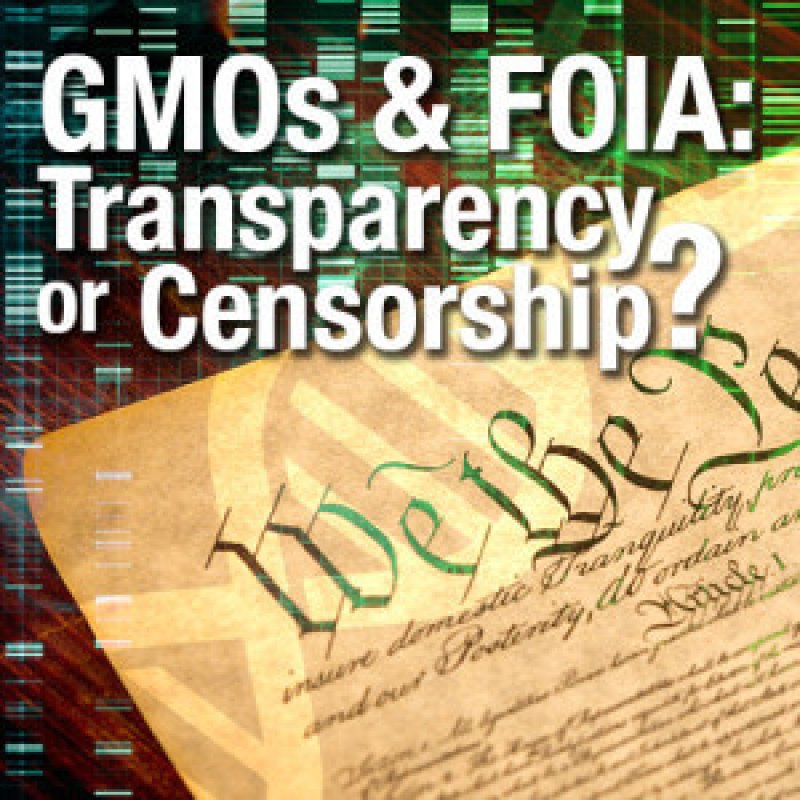Stacy Malkan, co-founder and co-director of the organic industry funded U.S. Right to Know, wrote a guest opinion piece for Nature Biotechnology earlier this month in reply to Nature Biotechnology’s October editorial, “Standing up for science,” Malkan used the forum as an opportunity to attack University of Florida plant geneticist Kevin Folta for his associations with the biotechnology industry. The reply to Malkan came from Jack M. Payne, senior vice president for agriculture and natural resources at the University of Florida.
Here are excerpts from the original editorial and the the January 8, 2015 exchange:
Standing up for science, October 8, 2015
Smear campaigns against those speaking out against scaremongering on genetically modified (GM) crops highlight why support for scientists involved in public outreach is so important.
Earlier this year, the activist organization U.S. Right to Know (USRTK), bankrolled largely by a $47,500 donation from the Organic Consumers Association, submitted Freedom of Information requests asking certain U.S. academics for e-mails dating back to 2012 — requests that the Union of Concerned Scientists claims are little more than harassment and intimidation, with the intent of disrupting and delaying their work. These scientists have been targeted because they speak inconvenient truths about GM technology.
The views of the public and scientists on GM food are worlds apart: a Pew Research Center report in January 2015 showed that only 37 percent of the public believe that GM foods are safe (whereas 89 percent of scientists do). Anti-science activists want to maintain that gap.
Headlines focused on Kevin Folta, a University of Florida researcher, because USRTK leaked his e-mails to three journalists. Two of them co-posted a PLOS blog (now removed), while the third wrote a front-page New York Times news story highlighting a $25,000 donation from Monsanto to Folta’s institution. In both cases, the reporters cherry-picked sentences from several thousand e-mails, highlighting Folta’s communications with Monsanto, often out of context, to insinuate that he is an industry shill — and thus presumably unfit to talk to the public.
This is how demagogues and anti-science zealots succeed: they extract a high cost for free speech; they coerce the informed into silence.
* * *
Stacy Malkan, Standing up for transparency, January 8, 2016
Your editorial in the October issue entitled “Standing up for science” contained many indefensible statements. It falsely accused us of a “smear campaign” in investigating the food and agrichemical industries, their public relations firms and front groups, and the professors who speak for them.
***
For the record, USRTK is not an anti-GMO group. We are a consumer group. We believe genetic engineering of crops may someday have benefits; however, it should proceed only with full transparency, as well as stringent health and environmental testing and safeguards.
***
Our aim is to expose the ties between the food and agrichemical industries and those who assist in their public relations efforts. The documents we obtained show that University of Florida Professor Kevin Folta accepted a $25,000 unrestricted grant from Monsanto (St. Louis). In accepting the grant, he promised Monsanto “a solid return on the investment.”
***
At one point, Folta even wrote to a Monsanto executive, “I’m glad to sign on to whatever you like, or write whatever you like.” This is not a shining example of integrity in science.
Your editorial neglects to mention that Folta used text that was ghostwritten by the public relations firm Ketchum (New York) for the website GMO Answers….
***
We are working for transparency, accountability, the integrity of science and public institutions, and to improve our nation’s food system. We are not out to ‘get anyone’.
* * *
Jack M Payne, Standing up for scientific consensus, January 8, 2016
Folta already has spent a great deal of time responding to USRTK. I believe he can better spend his time on research to actually improve a food system instead of continuing to debate which people and institutions are the most trustworthy to do so. This is why I, and not Folta, am responding to USRTK’s letter. In my opinion, both general circulation and scientific media have erroneously framed the interactions of scientists and USRTK as a scientific debate. It is not.
A broad scientific consensus exists that genetically modified (GM) foods are as safe to eat as conventionally produced food. That we continue to see this consensus rejected or have activists muddle public understanding of this is frustrating.
***
The last time I responded to USRTK’s accusations, my response was followed by the group filing a public records request against me. That request has led to publicly funded attorneys pouring through thousands of my own e-mails. So be it.
***
With regard to USRTK’s specific accusation that Folta used text on the GMO Answers website that was “ghostwritten” by the Ketchum public relations firm … Folta was provided by Ketchum with sample answers meant as a guide for answering the first questions on the public website. As these answers were scientifically correct, Folta elected to post versions of them he had edited. In Folta’s review of the 67 answers that he provided to GMO Answers, he found only two cases where he amended Ketchum samples in this manner. The rest were Folta’s original work.
***
We are in a race against time to bring science to the rescue of Florida’s iconic citrus industry, to stave off pests and disease, and to feed the hungry. Producing e-mails to feed the narrative of an activist group and debating what those emails say slows us all down in that race.































